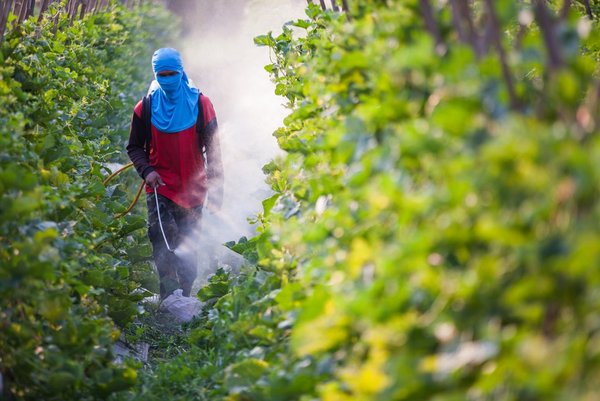- Share this article
- Subscribe to our newsletter
Reducing toxic impacts of agriculture
In March 2024, the governments of Ecuador, India, Kenya, Laos, Philippines, Uruguay and Vietnam launched a USD 379 million initiative to combat pollution from the use of pesticides and plastics in agriculture. The Financing Agrochemical Reduction and Management Programme (FARM) is five-year initiative to combat agrochemical pollution. Funded by the Global Environment Facility (GEF), the programme is led by United Nations Environment Programme (UNEP), with the support of United Nations Development Programme (UNDP), the United Nations Industrial Development Organization (UNIDO) and the African Development Bank (AfDB).
Chemicals play a crucial role in farming, with nearly 4 billion tons of pesticides and 12 billion kg of agricultural plastics used every year. Despite their benefits for food yields, these chemicals pose significant risks to human health and the environment. As many as 11,000 people die from the toxic effects of pesticides annually, and chemical residues can degrade ecosystems, diminishing soil health and farmers’ resilience to climate change. The open burning of agricultural plastics also contributes to an air pollution crisis that causes one in nine deaths world-wide.
Highly hazardous pesticides and mismanaged agricultural plastics release toxic persistent organic pollutants (POPs) – chemicals which don’t break down in the environment and contaminate air, water and food. These inputs are generally cheaper than sustainable alternatives, giving farmers little incentive to adopt better practices.
FARM seeks to change that, elaborating the business case for banks and policy-makers to reorient policy and financial resources towards farmers to help them adopt low- and non-chemical alternatives to toxic agrochemicals and facilitate a transition towards better practices.
The programme is projected to prevent over 51,000 tons of hazardous pesticides and over 20,000 tons of plastic waste from being released, while avoiding 35,000 tons of carbon dioxide emissions and protecting over 3 million hectares of land from degradation as farms and farmers convert to low-chemical and non-chemical alternatives.
To do this, the FARM programme will support government regulation to phase out POPs-containing agrochemicals and agri-plastics and adopt better management standards, while strengthening banking, insurance and investment criteria to improve the availability of effective pest control, production alternatives and trade in sustainable produce.
(UNEP/ile)
Read more on the UNEP website





Add a comment
Be the First to Comment